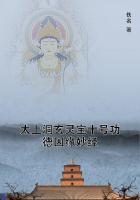The English troops advanced in their concentrated formation in single line; their left wing occupied the Shah Dara plantations and the pontoon bridge across the river Ravi that flows close to Lahore.It extended thence five English miles further eastwards to a canal which flows past the Shalimar Park towards the south.This park and a place called Bhogiwal, lying next to it, formed the right wing.Before their front stretched a tributary of the sinuous Ravi with its marshy banks.To the rear of their position lay the fortress of Lahore with its brick wall, fifteen feet in height, pierced by thirteen gates.
The Ravi, a tributary of the Indus, had at this time but little water.The bed of the river was for the most part dry, and only consisted of rapid, irregular rivulets, which here and there exposed between them larger and smaller, but for the most part, muddy islands.The bed of this river formed the chief obstacle to the Russian attack, for they had to pass it before reaching the English front and the city of Lahore.
Heideck occupied a small tent that he had brought with him from Chanidigot.Morar Gopal's horse had carried it on its back during the march from Mooltan to Lahore, for the lancers, whom Heideck had joined as being a friend of their officers, had not covered the distance by railway.They were now encamped in the Shalimar Park, an extensive enclosure surrounded by a wall and full of the most beautiful mango trees, and among them many small fountains and pretty pavilions.As Heideck wore a khaki suit and a cork helmet, he looked, in spite of his having no distinctive military dress, quite like an English officer, the resemblance being increased by his martial bearing.
During the march and during his stay in the camp he had had an opportunity of closely observing the British system of campaigning.
But he took good care not to mention it to the English officers, for they were not very favourable conclusions at which he had arrived.He had gained the impression that the troops were neither well led, nor displayed any special knowledge of campaigning.The men both in bivouac and in camp were often in want, and, indeed, frequently suffered real distress, because the necessary material was not always at hand, and their food was not regularly supplied;the greatest confusion reigned in the commissariat department.
Not alone there, but also in the tactical units serious confusion was everywhere apparent, in consequence of the unpractical and heterogeneous composition of the detachments.First of all, the regiments which were to make up the army corps in Peshawar and Quetta were all jumbled up together, because as soon as ever they appeared to be ready to march, they were separately taken away from their garrisons and placed upon the railway.Concentration upon Mooltan and the hurried march to Lahore had resulted in downright inextricable confusion.
Heideck found himself in the middle of an army which had never engaged in a great war and certainly never in one against regular troops.It is true that the English were accustomed to fighting, for they had been constantly obliged to measure themselves with barbarous and semibarbarous peoples.They had made expensive expeditions and gained dearly purchased victories; but it was always the undisciplined, dark-skinned, and black hordes with whom they had had to deal.The experiences of the Boer War had not entered into the flesh and blood of the troops.The personal bravery of the individual had almost always been regarded as the main thing, and it was easy to understand why all the officers should be puffed up with vanity.They looked down with contempt upon all foreigners, because they had, as a matter of fact, almost always gained their victories over superior numbers.
Heideck noticed with astonishment that the tactical rules and instructions in the British army were still often at variance with modern armament, particularly in the case of the infantry; volley firing was habitually employed as the general way of engaging the enemy.The men were drilled at the word of command to open and keep up a steady even fire and then in close ranks to rush with the bayonet on the enemy.This powerful nation was, in fact, too listless to utilise the most modern experiences of the science of war: proud Albion blindly believed everything English to be good and despised everything new and foreign.Or did the English perhaps only avoid advancing in loose order in action because they were afraid that they would otherwise not be able to control their Indian soldiers?
The environs of Lahore, particularly to the north of the city between the wall and the camp, presented a very lively scene.The innumerable camels which had served as baggage animals and formed the major portion of the transports afforded a very peculiar spectacle.They were either lying on the ground closely packed together or solemnly paced along, while the shrill yells of the drivers filled the air.Moreover, there was here congregated a huge crowd of men belonging to the army in one or other capacity without being combatants, and the eye fond of picturesque impressions could feast with delight on the gay, ever-changing kaleidoscopic effects of the wide plain; while the distant scenery was also interesting enough in itself.Between the widely scattered villages and suburbs of the city, which contained 180,000inhabitants, beautiful parks and gardens shone in fresh green foliage, mostly surrounding the burial-place of a sultan or a famous Mohammedan saint.Towards the south-east there stretched away the great encampments of the cavalry and artillery in which were included many elephant batteries.
The city itself was choked full of military and the families of the officers.Almost all the women and children of the garrisons lying to the north-west of Lahore had fled here at the advance of the troops.Mrs.Baird, too, with her two little daughters and Mrs.















